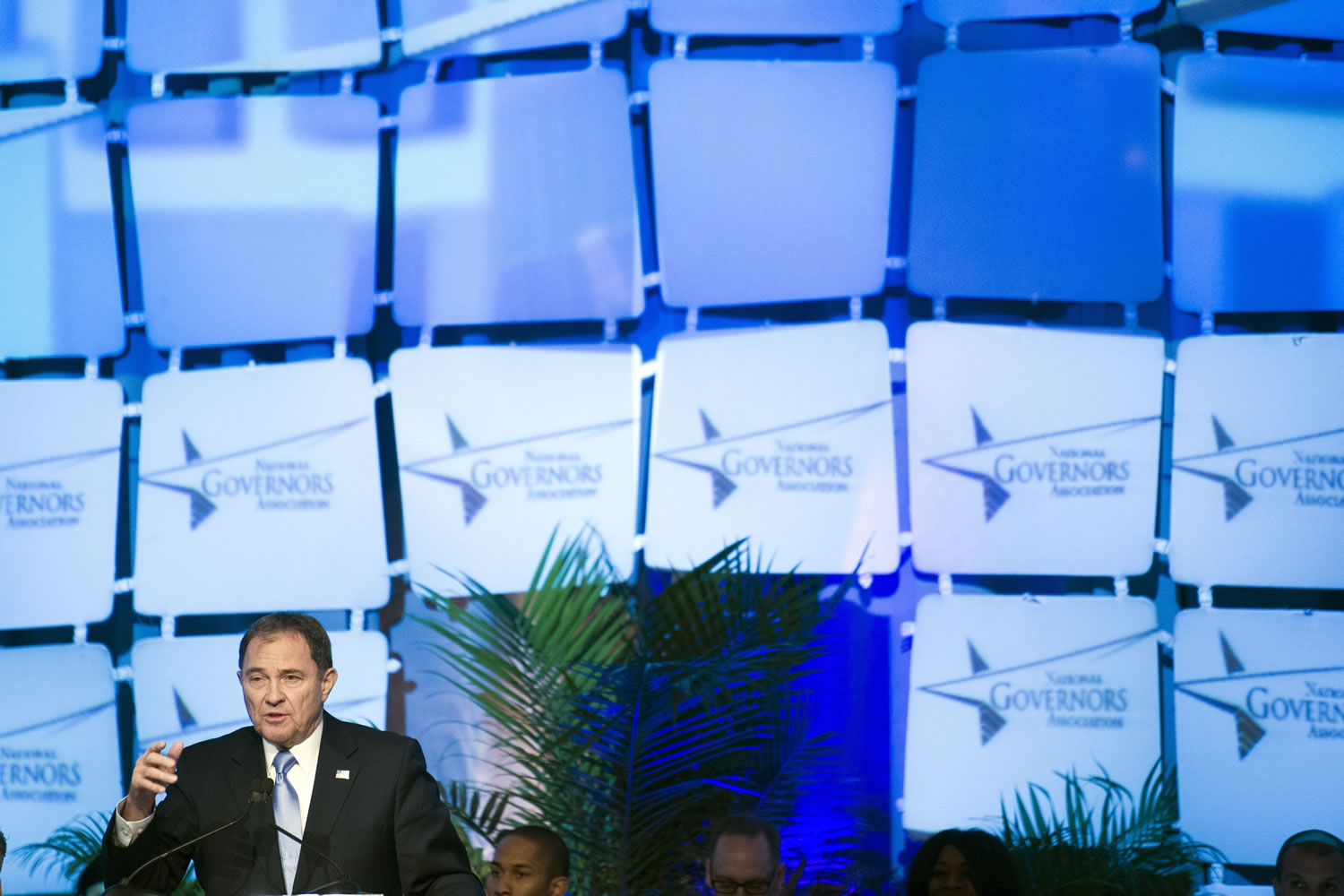WASHINGTON — The nation’s governors received a stark warning from a panel of economists Saturday that a recession is likely within the next years, but their states’ preparation for a potential economic downturn depend largely on which party the governor belongs to.
With a pep talk from President Barack Obama, Democratic governors arrived at the winter meeting of the National Governors Association touting their states’ achievements in raising the minimum wage and mandating paid sick leave. Their Republican counterparts, meanwhile, are emphasizing tax cuts and warning that policies seen as unfriendly to business will hurt states in the event of a recession.
Although the governors association meeting is meant to foster bipartisan solutions, the governors’ economic priorities reflect the deepening divide between red and blue states.
Democratic governors met with Obama at the White House on Friday afternoon, and the president credited the economic policies of Democratic-led states for reducing the nation’s unemployment rate to 4.9 percent.
“As Democrats, we believe that every American should have the opportunity to work for a good wage and benefits, and to be able to advance themselves and their families,” Obama said. “And you’ve helped our businesses create over 14 million new jobs over the past six years.”
Republican Gov. Pat McCrory of North Carolina said cuts to income and corporate taxes were the key to job growth and economic stability in his state.
“I believe in a very balanced approach in preparing the economy of our state for the future, and that’s having a diverse tax base that’s not reliant on one type of tax revenue, and that’s one reason we reduced the corporate tax and income tax because we were too reliant on those,” said McCrory, who is expected to face a tough re-election battle this year. “I think that was putting North Carolina in jeopardy not only from a financial standpoint but from a competitive standpoint.”
McCrory and other GOP governors took some satisfaction in a warning to the panel from Dan White, a senior economist at Moody’s, that states like California and New York with highly progressive income taxes are more susceptible to big drops in revenue during a recession.
“We’re trying to flatten our income tax rate in Arkansas, which I guess you could argue is non-progressive,” Republican Gov. Asa Hutchinson said. “But if you flatten it, you’re going to help those who are creating jobs weather those uncertain economic times. I do think you’ve got to keep in mind the job creators in managing tax policy.”
Hutchinson said the possibility of a recession also highlights the need for states to have more flexibility to manage their Medicaid budgets. A rise in the number of people on Medicaid can be an early warning sign of a recession, the economists said.
Arkansas is among the GOP-led states that have expanded Medicaid under Obama’s health care overall, accepting an infusion of federal dollars. Gov. Dan Malloy of Connecticut, the chairman of the Democratic Governors Association, noted that some Republican governors took a firm stand against expanding Medicaid in their states, only to change their minds. Republican John Kasich of Ohio, the only governor still running for president, is now campaigning on his decision to expand Medicaid.
“The good thing about Republican governors is, eventually they listen,” Malloy said.
Another Democrat, Gov. Jay Inslee of Washington, pushed back against the notion popular among conservatives that a higher minimum wage will lead to job losses, saying the business community in Seattle is thriving with a $15 minimum wage.
Democratic Gov. Jack Markell of Delaware said there is a middle ground on economic policy that’s in danger of being drowned out by partisan rhetoric.
“Bernie (Sanders) is only talking about redistribution, whether it’s in the form of taxes or health care or anything else. The Republicans have their perspective, and what I think we actually need is an economy which is a growth and sharing economy,” said Markell, who has endorsed Hillary Clinton. “And I think that is precisely what is missing from the national dialogue.”



